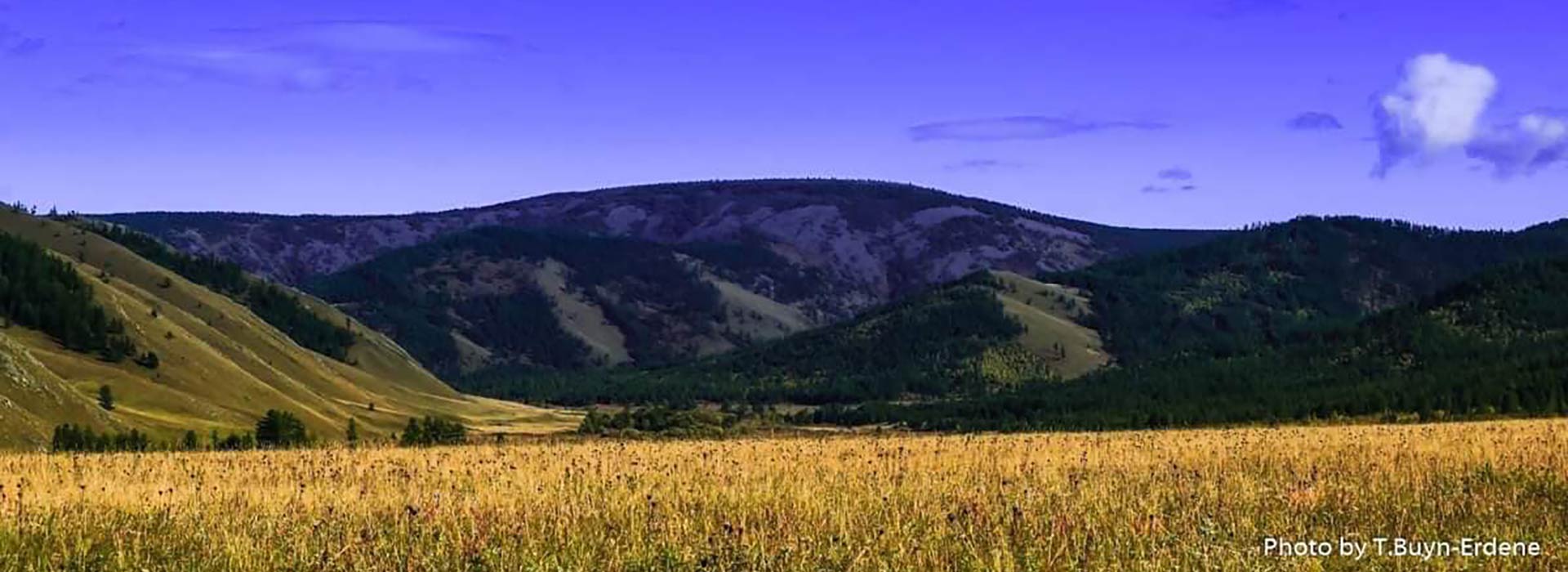
A continuous commitment to decreasing our carbon footprint
History
The global awareness of climate change has inspired many scientists and economists to advocate for more sustainable forms of development. In 1987, the People’s Republic of Mongolia established its first environmental agency. Since the 1990s, the Democratic Republic of Mongolia has expanded on the work of the previous regime, establishing a ministry of the environment and designating and protecting numerous national parks.
An appreciation for nature’s beauty, combined with the urge to protect it, is as old as the first nomadic pastoralist. From a young age, both urban and rural Mongolians learn that humans and human action are part of nature and included under the protection of Tengri (Sky). From this perspective, it is essential to maintain balance and never to take more than necessary. Nomads know that their livestock, such as goats and yaks, can damage the natural world, and that nature needs time to heal itself. That is why when land, water, and wildlife are threatened, nomads feel like they are threatened as well.
Since its establishment as a tour operator in 1993, Nomadic Journeys has been committed to upholding the standards of ecotourism and sustainable tourism. To Mongolians, the Western concepts of sustainability and environmentalism are simply common sense. In all levels of its business activity, Nomadic Journeys strives to implement policies that are both sustainable for the planet and comfortable for guests.
Camps
When determining where to camp, Nomadic Journeys looks for the hidden gem. An ideal camp should be far from busy roads, electricity poles, and traffic noise. The camp should be relatively small, not only to minimize impact on the environment but also to maximize the comfort of the guests. Camps should be temporary, leaving no more of an imprint on the land than a herdsman’s family would. At Nomadic Journeys’ ger camps, Jalman Meadows & Ikhnart Rocks, solar panels and windmills provide electricity, while heating comes from a traditional stove and local fuel, such as animal dung or wood. The toilets are long-drop style, allowing for natural decomposition with the help of bacteria. Showers are provided in a separate small gers with water heated on a stove. All trash is separated and disposed of responsibly.
Transportation
The remote location of many of Mongolia’s most beautiful places makes some use of gasoline-powered vehicles unavoidable. However, most of our trips and treks rely on traditional means of transport, such as horses or carts. Vehicles are employed only to move guests between Ulaanbaatar and the trek or trip site. As our use of domestic and charter flights increases, Nomadic Journeys is considering mitigation fees for such travel, so we can invest in both local and international organizations for combating climate change.
Food
Due to Mongolia’s geography and climate, many foods must be imported. To ensure that its guests receive both fresh and healthy meals, however, Nomadic Journeys is committed to purchasing eggs, meat, honey, and dairy products from local nomadic families, as well as Mongolian-grown vegetables. Using local food products not only provides our guests with the authentic tastes of Mongolia, but also offers another avenue for reducing our carbon footprint.
Waste Management
Pastoral nomads live in a purposefully minimal style: everything they own has its purpose and use. Most of the trash produced by traditional nomads would have been naturally biodegradable. To cope with the modern increase in trash, however, the government of Mongolia has started to implement new policies, such as banning single-use plastic bags. Nevertheless, there is currently no nationwide waste management plan in Mongolia, and few organizations have their own waste management initiatives. At present, organizations and households can sort waste and submit their recycling fees to private recycling plants.
Nomadic Journeys has implemented a socially responsible waste management plan using eight different classes of trash. Our ger camp staff sorts the garbage and pays additional fees to private recycling plants for the trash to be processed. During field trips or treks (when such sorting is not possible), food waste is buried, while any recyclable materials are returned to Ulaanbaatar and then passed to recycling plants.
Nomadic Journeys has built its business on ecotourism by combining environmental knowledge and traditional beliefs to create eco friendly ger camps, trips, and treks. Going forward, Nomadic Journeys will continue to find new and innovative ways to decrease its carbon footprint.
What our guests say
We appreciate your feedback about our tours and services.


